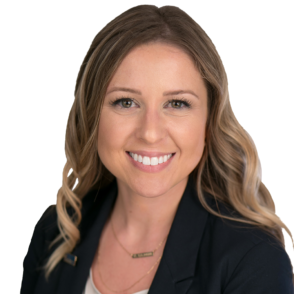Personal Liability Insurance can help protect individuals from financial losses when they are found liable for causing injury or property damage to others, whether they are renters, high-value homeowners or mid-range property owners. Personal Insurance solutions also cover cherished items like jewelry, recreational vehicles, private collections, or other property coverage.
To learn more, we spoke with Kate Wright, Associate Vice President, Regional Practice Group Leader, Personal Insurance, Burns & Wilcox, Indianapolis, Indiana; and Danielle Westen, Vice President, Hudson Insurance Group, New York, New York.
What are some of the greatest Personal Liability exposures individuals face today?
Kate Wright (KW): If you own or rent a property, whether it is 1 acre or 100 acres, you have a Personal Liability exposure when guests are on your property. The more properties you own or rent, the greater the exposure. As the property owner, you are responsible for the safety of your guests and therefore responsible for any injuries or property damage that occurs. Personal Liability extends beyond property ownership because it provides worldwide coverage for property damage or bodily injury to others caused by an insured. The more dynamic your dynamic lifestyle is, including frequent traveling, and the more assets you own, the bigger your exposure is going to be. Beyond Personal Liability, if you own vehicles, ATVs or watercrafts and are at-fault or negligent causing an accident, there is a huge exposure there as well — especially if you have multiple drivers or youthful drivers within your household.
Danielle Westen (DW): Exposures include deck collapses, pool incidents, ATV accidents — anything where an individual could be seriously injured or die. If you are found liable for something and you do not have enough insurance, you could be sued personally and you could end up paying out of pocket. We tend to be focused on individuals who own property, but I will add that individuals who are just renting a property and have assets also need Personal Liability coverage, whether through Renters Insurance, Homeowners Insurance, or a Personal Umbrella Insurance policy on top of those primary policies. The general rule of thumb is that you want coverage limits that are above your net worth so that you cover your assets.
How can insurance help individuals respond to these threats?
KW: Homeowners Insurance or Renters Insurance is going to cover their personal liability, and policies like Auto Liability Insurance or Watercraft Insurance can also provide coverage for bodily injury, property damage and medical payments associated with those exposures. Limits vary across the board and minimum state limits are required, but, with inflation today, we are absolutely seeing the need for higher limits overall.
DW: When a catastrophic incident happens on your premises, your Homeowners Insurance carrier will begin to defend you. Once they have exhausted their limits, that is where your Personal Umbrella Insurance could pick up. The defense coverage is very important.
How has the market changed for Personal Liability Insurance over the past couple of years?
DW: The Personal Liability Insurance market, particularly the Personal Umbrella Insurance market, has experienced significant shifts in the last few years. Most of it is driven by increased loss ratios and the rising frequency of large claims. In recent years, we have seen a surge in what are known as ‘nuclear’ verdicts, with jury awards of $10 million or more. Due to these reasons, pricing has increased, but I think the more critical issue is that coverage has contracted along with the increase in prices. Carriers are responding to that loss pressure by tightening what they offer — meaning if they previously offered $10 million in limits, they may now only offer $5 million; if they offered $5 million, now it might be $1 million. This reduction in available capacity is particularly problematic in an environment where legal risks are escalating and the demand for higher coverage levels is growing.
What are common coverage gaps in the Personal Liability Insurance market that agents and clients should be careful to avoid?
KW: Anyone who has a pool, trampoline, or pets on their property should know that their Homeowners Insurance could have sublimits or conditional exclusions associated with those exposures. It is important that clients understand that and work with a trusted insurance advisor who can explain their coverages and limitations.
DW: One of the most common coverage gaps is when a client does not fully understand that any exclusion on their underlying policy automatically gets excluded on their Excess Liability policy as well. Clients can be left exposed if they assume they are getting broader coverage.
Can you share an example of a scenario that illustrates the types of risks we have been discussing?
DW: Animal liability issues are not always related to aggression. If your dog is too excited and they accidentally jump on an older person who then falls and breaks their hip, that can be very expensive. Slip-and-fall accidents on ice are another common issue. About 85% of Personal Umbrella losses come from severe car accidents or ATV accidents.
KW: It is also important to note that you can still be held responsible for accidents that are not on your property where you are found liability or negligent. If you are out skiing in the mountains and you are not abiding by the rules, and you hit an individual, you can be held liable, and your underlying Homeowners Insurance and Personal Umbrella policy can respond.
What advice would you give brokers to increase their success rates with these products?
KW: The experiences that you have seen through others can help illustrate the importance of these coverages. Accidents happen all the time. Working with someone who understands the coverages and will walk the client through the scenarios that could occur based on their exposures is incredibly important. An experienced agent can sit down with an individual and ask questions to understand all their exposures from a property, auto, watercraft and lifestyle perspective.
What advice would you give brokers on targeting individuals to sell this coverage to?
DW: There is a common misperception in the market that only affluent individuals need Personal Umbrella policies. The reality is that we are really looking at clients who are middle- to upper-middle-class. A large portion of the population absolutely does need a Personal Umbrella policy.
Why should someone consider Burns & Wilcox for their Personal Liability Insurance needs?
KW: Burns & Wilcox’s Personal Insurance Practice has a team of experts specializing in Residential Property, Flood, High-Value Solutions, Personal Liability, and Personal Recreation. Our strong market relationships, along with our expertise, help us consult with our agency partners to find solutions for complex, high-risk exposures.
Personal Insurance
Why your clients might need it: Personal Insurance makes sure someone’s property is protected, whether they rent or own a home, have a cherished collection or high-end jewelry, or own a personal watercraft or recreational vehicle. Risks include everything from deck collapses, pool incidents, ATV accidents — anything where an individual could be seriously injured.
Protects against: It protects people if someone is injured or has an accident on their property, which is important given the rising frequency “nuclear” jury verdicts in recent years.
Expert opinion: “If you own a property, whether it is 1 acre or 100 acres, you have a Personal Liability exposure when guests are on your property. The more property you have, the greater the exposure.”






